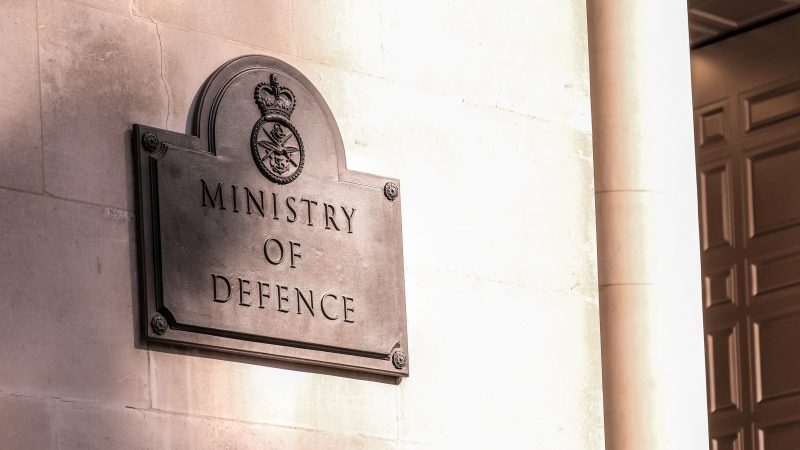
Since Vladimir Putin’s invasion of Ukraine, defence now sits at UK public priority number four in YouGov’s tracker, ahead of education, housing, welfare, crime, and Brexit. On May 30th, Shadow Defence Secretary John Healey called for an urgent review to “rewrite Britain’s strategy for dealing with Russia and rectify flaws in the integrated review”. The government now risks overreacting and overcorrecting in the other direction. Rather than reach for knee-jerk reactions such as Liz Truss’s demand to more than double Ministry of Defence spending to 5% of GDP, Labour must ask itself: what is the most sustainable way to protect ourselves?
Defence spending at 5% of GDP represents an increase from £45bn a year to roughly £100bn. To put that in context, the £20 uplift per week to Universal Credit cost £6bn a year; the ‘once in a generation’ integrated rail plan cost £53.5bn; and one and a half years of the Covid furlough scheme cost £70bn. The invasion of Ukraine has proven the efficacies of high-tech, cheaper massed equipment in certain combat scenarios. These include unmanned drones such as the Turkish Bayraktar-2, which costs around £3m (each F-35 fighter jet costs £100m), and autonomous weapons such as NLAWs (a Javelin anti-tank homing missile costs £80k, while Challenger Two “wouldn’t last a week” and costs around £5m).
What is the objective of our armed forces? Britain’s armed forces have a goal of having ‘full-spectrum’ capabilities. This means that we want world-class, integrated capabilities in each of the army, Royal Navy, and Royal Air Force. It is known that we can’t afford this even with current spending levels at 2.2% of GDP on the MoD – at the time of writing, 50% of our 18 destroyers and amphibious ships are in the docks undergoing maintenance or refits. Even if we wanted to suddenly double our fleet of destroyers, the capacity of our dockyards and the limited availability of components, subcontractors and skilled workers would make that a very difficult task.
What is the definition of defence spending when economic and other forms of warfare are taken into consideration? Net zero and removing Russian gas from our energy supply is now a security issue. Shielding the worst off in our society from those effects will cost just as many billions as new ships. Disinformation and cyberattacks have real and disturbing impacts on our lives – don’t forget the North Korean WannaCry virus, which shut off our NHS in 2017 and led to an unknown number of casualties and unknown health problems.
In a series of essays last year, Labour subject matter experts in the Fabians’ defence and security policy group criticised the current government’s “tilt to Indo-Pacific” strategy presented in the integrated review last March as riddled with holes and contradictions. Without resources in the decrepit Foreign, Commonwealth and Development Office – an example of which is an embarrassing shortage of Mandarin speakers – and without resources to fully back up our hard power assertions, we truly are a paper tiger. Unfortunately for our country, this criticism has held up well during the events of the past few weeks.
How much intimidation does one aircraft carrier provide, sailing around the East China Sea with two thirds of its planes missing? In contrast, how much did just 100 highly professional special forces and reserves achieve by training 13,000 soldiers in Ukraine? A little-known fact is that a regular British infantry soldier gets more training than a US Marine, despite the hype and public persona attributed to the latter. No wonder British special forces keep handily defeating the Marines in training exercises.
If defence is about protecting citizens, our precious money must be invested not in the flashiest platforms but in cost-effective programmes that have the most practical use in the long term, which means collective cyber defences, integrating veterans and reservists into our communities and doubling down on our world-class army, the service branch which provides agile, providing global security to allies in human form from anti-poaching operations in sub-Saharan Africa to peacekeeping in Sierra Leone and the Balkans.
Resist the short-term pressure of boosting defence spending by increasing purchases of costly platforms, disrupting carefully crafted multi-year settlements and crippling future budgets. Instead, invest in our people and the often small, unseen means to protect each other. Clarify the remit of the National Cyber Force and ensure skills aren’t cannibalised from the private sector, whilst protecting and accelerating improvements to the career transition partnership, armed forces covenant and the reserves 2030 programme. Ensure the special operations brigade, which includes the new ranger regiment, and the 77th Brigade are at full strength.
Invest in British manufacturing jobs and capabilities to build up manufacturing capacity for the long haul, and try to reverse some of the catastrophic procurement decisions taken by the last few Conservative governments. Count economic security as real security by relentlessly pursuing net zero and energy independence from hostile states and, crucially, supporting our most vulnerable along the way. Labour’s manifesto on defence must put people first. The world is becoming an unsafe place, and Britain must be ready to protect each and every one of the individuals who make it the country it is.




More from LabourList
‘Tackling poverty should be the legacy of Keir Starmer’s government’
‘The High Court judgment brings more uncertainty for the trans community’
‘There are good and bad businesses. Labour needs to be able to explain the difference’